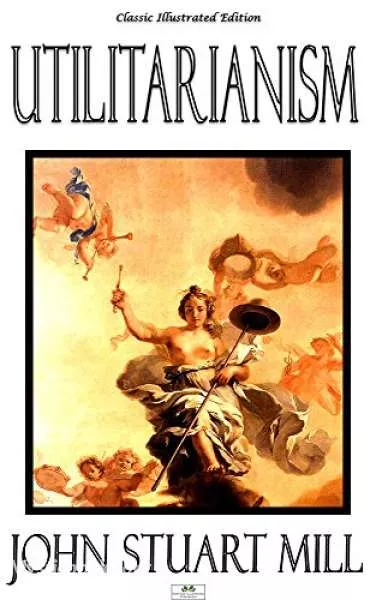
Utilitarianism
'Utilitarianism' Summary
Mill took many elements of his version of utilitarianism from Jeremy Bentham, the great nineteenth-century legal reformer, who along with William Paley were the two most influential English utilitarians prior to Mill. Like Bentham, Mill believed that happiness (or pleasure, which both Bentham and Mill equated with happiness) was the only thing humans do and should desire for its own sake. Since happiness is the only intrinsic good, and since more happiness is preferable to less, the goal of the ethical life is to maximize happiness. This is what Bentham and Mill call "the principle of utility" or "the greatest-happiness principle." Both Bentham and Mill thus endorse "classical" or "hedonistic" forms of utilitarianism. More recent utilitarians often deny that happiness is the sole intrinsic good, arguing that a variety of values and consequences should be considered in ethical decision making.
Although Mill agreed with Bentham about many of the foundational principles of ethics, he also had some major disagreements. In particular, Mill tried to develop a more refined form of utilitarianism that would harmonize better with ordinary morality and highlight the importance in the ethical life of intellectual pleasures, self-development, high ideals of character, and conventional moral rules.
In Chapter 1, titled "General Remarks," Mill notes that there has been little progress in ethics. Since the beginning of philosophy, the same issues have been debated over and over again, and philosophers continue to disagree sharply over the basic starting points of ethics. Mill argues that these philosophical disputes have not seriously damaged popular morality, largely because conventional morality is substantially, though implicitly, utilitarian. He concludes the chapter by noting that he will not attempt to give a strict "proof" of the greatest-happiness principle. Like Bentham, Mill believed that ultimate ends and first principles cannot be demonstrated, since they lie at the foundation of everything else that we know and believe. Nevertheless, he claims, "considerations may be presented capable of determining the intellect," which amount to something close to a proof of the principle of utility.
Book Details
Language
EnglishOriginal Language
EnglishPublished In
1863Authors
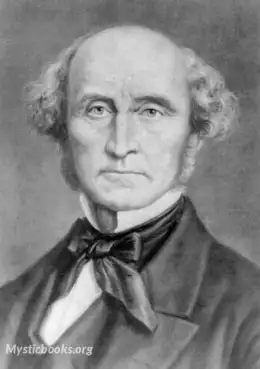
John Stuart Mill
England
John Stuart Mill usually cited as J. S. Mill, was an English philosopher, political economist, Member of Parliament, and civil servant. One of the most influential thinkers in the history of classical...
Books by John Stuart MillDownload eBooks
Listen/Download Audiobook
- Select Speed
Related books

Poems on Slavery by Henry Wadsworth Longfellow
This volume of poetry by Henry Wadsworth Longfellow, first published in 1842, addresses the issue of slavery in America. While some critics felt the p...

Watt's Songs Against Faults by Isaac Watts
Isaac Watts's "Songs Against Faults" is a collection of poems that offer moral guidance and encourage the development of positive character traits. Wa...

Regrets sur ma vieille robe de chambre by Denis Diderot
Regrets sur ma vieille robe de chambre fut écrit suite à une offre de Marie-Thérèse Rodet Geoffrin d'une nouvelle robe de chambre qui fit regretter à...

Aesop's Fables, Volume 02 (Fables 26-50) by Aesop
Dating back to the 6th century BC, Aesop's Fables tell universal truths through the use of simple allegories that are easily understood. Though almost...
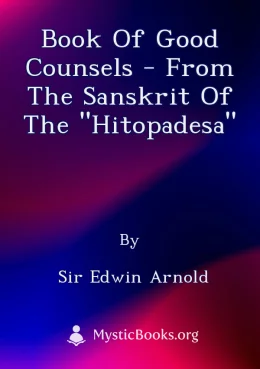
Book of Good Counsels - From the Sanskrit of the "Hitopadesa" by Sir Edwin Arnold
Hitopadesha, meaning 'good advice', is an ancient Indian collection of fables believed to have been written by Narayana Pandit in the 10th or 11th cen...

Fábulas, volume 2 by Aesop
As Fábulas de Esopo são uma coleção de histórias curtas atribuídas ao lendário escritor grego Esopo. Estas fábulas têm sido usadas durante séculos par...
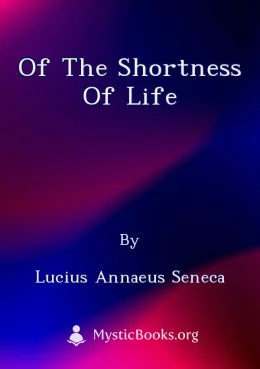
Of the Shortness of Life by Lucius Annaeus Seneca
In 'On the Shortness of Life,' Seneca, a prominent Stoic philosopher, addresses his friend Paulinus, urging him to make the most of limited time. Sene...

Wilhelm Meister's Apprenticeship Volume 2 by Johann Wolfgang von Goethe
Wilhelm Meister's Apprenticeship, Volume 2, continues Goethe's exploration of the protagonist's journey to self-realization. Meister, now immersed in...

Bible (ASV) NT 07: 1 Corinthians by American Standard Version
The First Epistle to the Corinthians is a book of the Bible in the New Testament. 1 Corinthians is a letter from Paul of Tarsus and Sosthenes to the C...
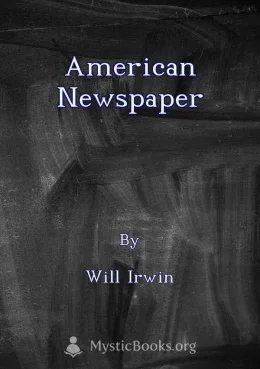
American Newspaper by Will Irwin
In "The American Newspaper," Will Irwin presents a critical examination of journalism at the turn of the 20th century. He analyzes the origins, purpos...
Reviews for Utilitarianism
No reviews posted or approved, yet...